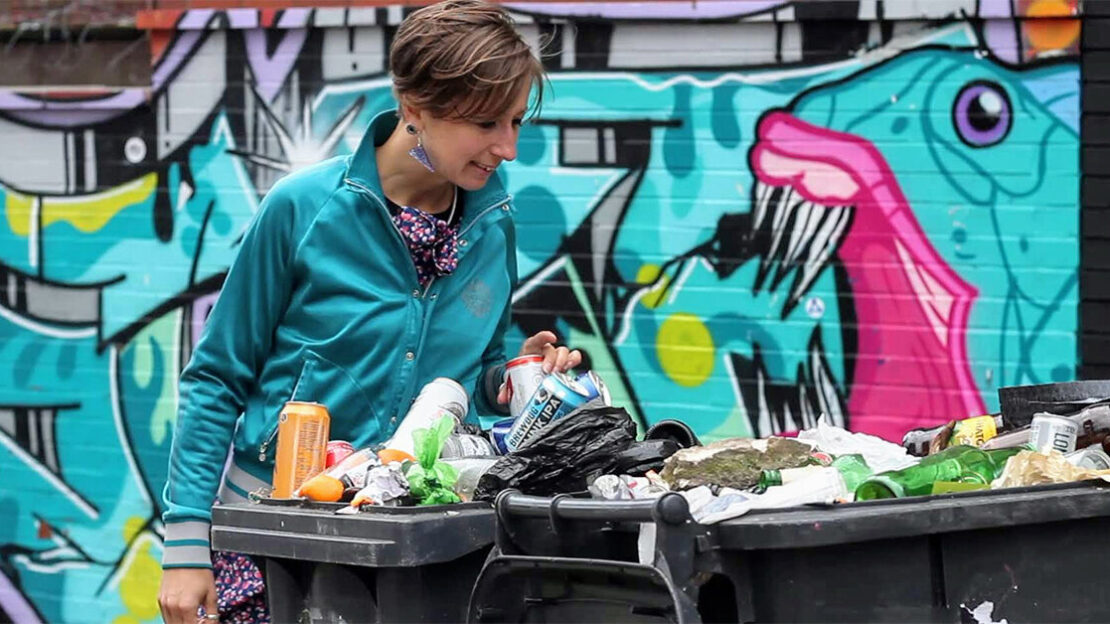Livvy Drake (Sustainable Sidekicks) is a Sustainability and Behaviour Change consultant who works with events and businesses supporting their sustainability journey with consultancy and training. She has worked on many events; from Shambala festival to Cisco Live. In this guest blog she talks about her research in light of the the recent announcements from Coco Cola and Carlsberg about their planned use for a new type of plant-based plastic, as well as the news that cellulose-based ‘plastic-free’ PPE visors are being launched on the market.
Waste and plastics are one of Livvy’s particular passions, so if you have more questions about your material choices or how to improve your recycling rates and bin set up join her on 2nd July (11am-12.30pm) for Waste 101: Managing Waste and Recycling Mastermind. Sign up HERE.
Last month, Coca Cola and Carlsberg announced their support and planned use for a new type of plant-based plastic, PEF, and this July cellulose-based ‘plastic-free’ PPE visors were launched on the market.
Whilst many people applaud these products as a win against plastic pollution, I roll my eyes, take a deep breath and start researching how these materials can actually be disposed of, if the waste processors will really take them and what happens if they do become litter.
Developers Avantium claims their PEF plastic, which could hit the shelves in 2023 as Coca-Cola bottles or lining for Carlsburg’s paper bottles, can technically be recycled in the existing plastic recycling system. This sounds great, but for the plastic recyclers it will need to be economically viable, with large enough volumes and demand from manufacturers to buy it back for remanufacture.
Terracycle, a company that provides takeback schemes for hard-to-recycle plastics is offering collections of the cellulose-based PPE visors, because whilst the material is certified ‘home-compostable’ it can’t simply go into the existing food composting system. Terracycle will need to find plants that will accept it. This is because the majority of composting processors (anaerobic digestors) can’t accept compostable or home compostable plastics because they don’t provide the right conditions for materials to degrade.
So how does this relate to event organisers? Every time someone on your team finds a new ‘sustainable’ material to switch to, or before you invest in thousands of compostable coffee cups and want to claim your zero-waste, ask these questions:
- Is the recycling or composting process practically available in the location this item will end up?
- Can my waste contractor process it in the suggested way?
- Does the manufacturer offer a take-back scheme?
- Will it actually end up in general waste (which means it is probably going for waste-to-energy incineration)?
- If it becomes litter, can it actually degrade? (if something can hold a fizzy drink in it, it is unlikely to dissolve when it lands on a grass field)
Of course, we are all eager to do the ‘right thing’, so materials using the terms biodegradable, compostable or plant-based, can sound a better option to their villainized fossil-fuel based plastic cousin. But the realities are that products can be put on the market without any regard for their end-of-life, or suggesting a process that is technically possible but not practically available.
Whilst these material’s descriptions sound like they will degrade naturally if they become litter. The reality is items certified compostable require temperatures of 60 degrees for 90 days and home-compostable, 20-30 degrees for between 28 days to 26 weeks. Our local rivers, sea or the British countryside do not currently reach these temperatures, which means these items will still remain litter. And even if they do degrade after 26 weeks naturally that is still 6 months of littering time! You can read more on the different bio-plastic classifications here.
The reality is if you want to use compostable plastic materials you need to find a local compost facility that will actually accept these materials (which will probably require them testing them first) and have a separate bin for their collection- all which comes at a cost on top of the increased cost of these materials.
So what is the alternative, I hear you ask? It may not sound as sexy but it’s that reduce, reuse, recycle mantra also known as the Waste Hierarchy which all businesses are legally obliged to follow (little known fact). So how can you:
- Prevent waste
- Find reuse models
- Or work with suppliers on closed-loop recycling systems which mean they take their material back and you can then buy recycled material products.
So for your coffee cups, what about hiring in cups from Green Goblet , that are taken away for washing. The same goes for your beer, rather than filling your bins with paper-based Carlsburg bottles, adopt a reuse scheme. As Carlsburg rightly pointed out to edie, they want the bottles to have the same life-cycle impact as its “most efficient packaging to date”, refillable glass bottles.
Of course for PPE such as gloves reuse is not practical, and whilst visors are being cleaned for reuse in hospitals, this has been because of shortages and safety needs to be guaranteed. So whether choosing plant-based or oil-based plastic PPE it is essential that you look down the waste hierarchy to ensure the disposal is safe and there are bins to capture these streams at the places where they become discarded to avoid them ending in the natural environment.
This guest blog originally appeared in Vision: 2025’s newsletter. Sign up to receive monthly event sustainability news, case studies and guest blogs direct to your inbox using the form below.


